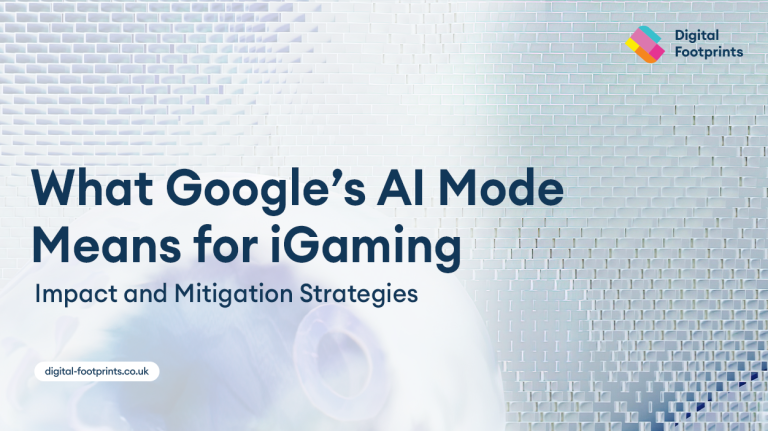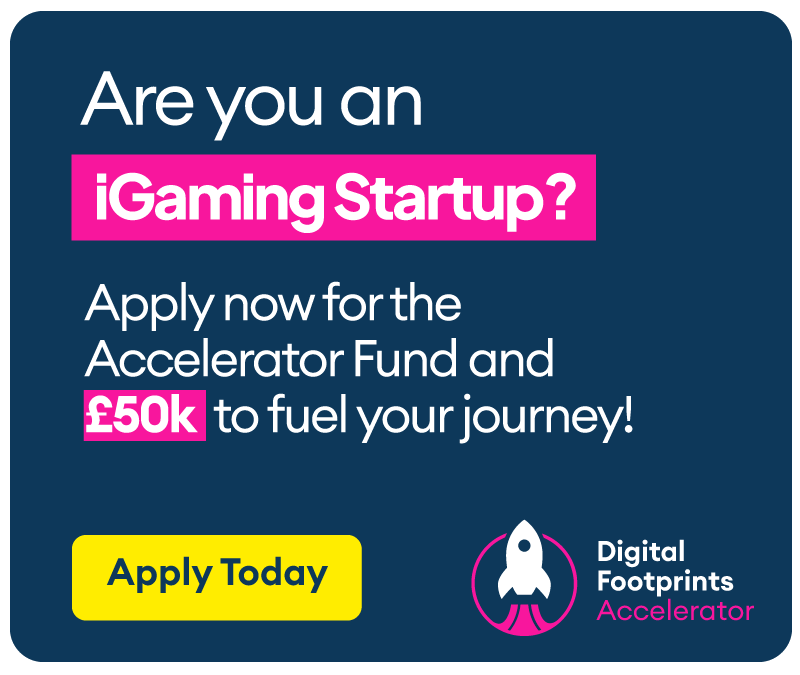Artificial intelligence (AI) has taken the marketing world by storm. It’s being used for everything from content creation to data analysis and looks set to completely transform the way we work and live our lives.
We’re now seeing AI integrated into a range of tools and services, Google’s search engine included. While this feature is undoubtedly handy for the average user, it’s having a real impact on iGaming (and other) brands, and is forcing them to rethink how their content performs in and is tailored to Google’s search algorithm.
In this breakdown, we discuss the impact that Google’s AI mode is having on iGaming brands and discuss what strategies, if any, can be used to mitigate the detrimental effects. Read on to learn more.
What is Google’s AI Mode?
You’ll have likely noticed something new in Google search results recently: an AI-generated summary at the top of the page. This feature harnesses the power of generative AI to answer questions and queries, pulling information from across the top results.
On the surface, this seems like a smart move to help reduce the time spent looking for information. Instead of clicking on lots of different links until they find what they need, users can now see a kind of ‘highlight reel’ of relevant information and advice.
However, while this might benefit the end user, it’s causing a number of issues for digital brands.
The Impact on Brands
Changes in User Behaviour
Before Google rolled out AI mode, users would browse through the list of results and click whichever caught their eye, usually one of the top three links. Now, that’s all changed. Google’s AI mode has led to an increase in zero-click searches. Instead of following a link through to a website, users can now get all the information they need from the results page itself and leave without clicking on anything.
Reduced Organic Traffic
Of course, this shift in user behaviour leads directly to a reduction in organic traffic. Click-through rates (CTR) have fallen dramatically since AI mode was introduced, from an average of 3.07% to just 0.99%. There has also been a steep decline of 58% when looking at paid CTR.
To further illustrate this impact, a Pew Research Center study revealed that only 8% of Google users click on a link when an AI summary is available, compared to 15% of users when no summary is present.
Increased Competition for Visibility
Google’s AI tool does sometimes mention specific brands, but it often relies on the same ones over and over again, pulling information from a limited pool of resources and leaning on well-known, extremely high-authority domains.
This makes it even harder for small or new brands to cut through. They’re now fighting for visibility in AI summaries as well as in the search results themselves.
Direct Impact on iGaming
Reducing the Value of Content
Many iGaming brands utilise high-value, SEO-driven content to target keywords, rank in search results and draw in players. This can include things like betting guides for games such as blackjack and roulette, slot machine reviews and sports betting tips. These have long been an important tool for the iGaming marketer and have been a key vehicle for player acquisition and brand-building.
However, Google’s new AI mode can pull out highlights from such content and display them at the top of search results, meaning users never actually have to click through to the original source. Even if Google provides a link, only 1% of users will actually click on it.
Brand Recognition
When Google does link to sources or brands in AI summaries, it generally relies on well-established, high-authority brands with extensive backlink profiles and high EEAT (Experience, Expertise, Authoritativeness, Trustworthiness) scores. This effectively squeezes out smaller brands, making it more difficult than ever to cut through and beat the competition.
Even if a smaller iGaming platform produces high-quality content that’s hyper-targeted towards valuable keywords, it could still be overlooked by Google’s AI in favour of well-established, household brand names.
The Effect on Affiliates
Affiliate marketing is an iGaming cornerstone, with content guides funnelling users to operators via sign-up offers. Google’s AI mode is threatening to derail the relationship between affiliates and iGaming brands by significantly reducing the number of users that click through to sites from search results.
For example, a search for ‘best online poker sites’ may now generate an AI overview listing several platforms without directing users to an affiliate’s detailed review or bonus codes.
Mitigation Strategies
Focus on Brand Authority
For iGaming brands looking to mitigate the negative impact of Google’s AI mode, a focus on improving brand authority is key. Becoming the trusted source on a given topic can help ensure your brand is included in AI summaries, increasing the chances of users clicking through to your content.
To do so, brands should prioritise on enhancing EEAT scores by demonstrating first-hand experience through original insights or case studies and building authority via high-quality backlinks and mentions from reputable sources.
Make Your Content Click-Worthy
Creating click-worthy content is nothing new in marketing. However, you’ll need to think outside the box in a world of AI summaries and recommendations. Using exclusive hooks and deals can be a way of offering something AI can’t, and content formats such as live odds, odds calculators and interactive elements can give you something unique that can’t be summarised by AI tools.
Diversify Traffic Sources
While you can take steps to mitigate, unfortunately, it’s impossible to completely avoid the drop in search traffic that Google’s AI mode is causing. What this means is that you should focus your efforts on diversifying traffic sources. Direct traffic can be strengthened through email marketing, loyalty programs and app engagement.
Brands can also look at focusing more on social media, influencer partnerships and community-building to reduce their reliance on Google.
Monitor & Adapt
AI is a new technology, which means the tools it powers, like Google’s AI mode, are constantly changing and updating. This means that iGaming brands must be prepared to monitor their strategies and make changes regularly to achieve the best results.
Measure CRT and traffic changes to assess impact, track affected keywords and test out new content formats to see how effective they are. The goal isn’t just to react to traffic drops, but to stay ahead of Google’s changes by spotting patterns early and adapting your content strategy before competitors do.
Final Thoughts
Google’s AI Mode marks a significant shift in how search works, and for iGaming brands, the stakes are high. With AI overviews pulling information directly into search results, fewer users are clicking through to websites, putting pressure on organic traffic, affiliate funnels, and content-heavy acquisition strategies.
The brands that will weather this change are those that adapt quickly. That means improving EEAT scores to secure placements in AI summaries, creating content formats AI can’t easily replicate and diversifying acquisition channels beyond search. It also means keeping a close watch on performance data and adjusting strategies in real time as Google’s AI evolves.





